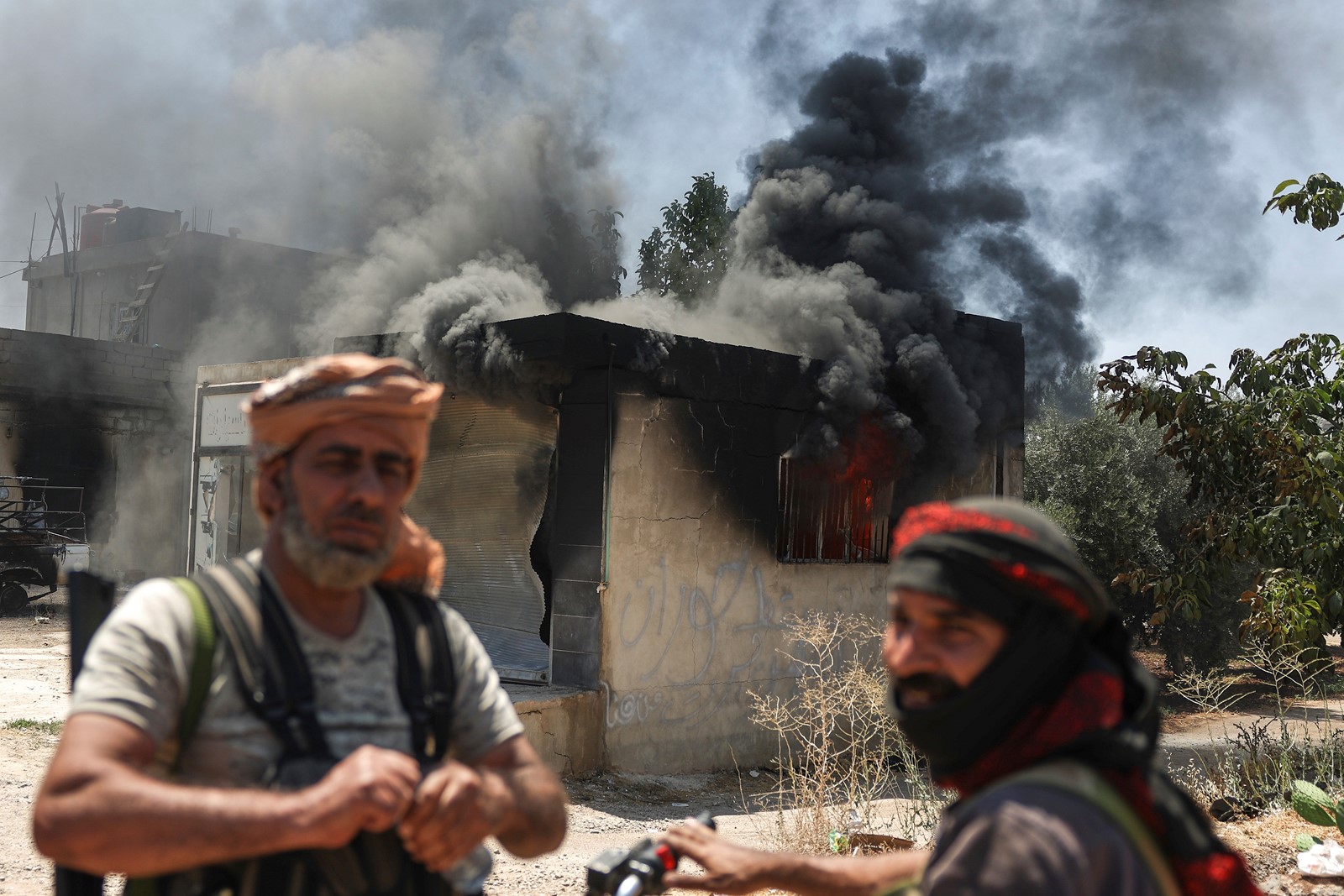
MAZRAA, Syria — Government forces in Syria prepared to return to a southern region Friday after renewed clashes broke out between Druze armed groups and members of Bedouin clans, leaving tens of thousands of people displaced in a worsening humanitarian crisis.
The government forces had withdrawn from Sweida province following a ceasefire agreement announced Wednesday that halted much the violence that plagued the area earlier in the week, but which ultimately did not stop the fighting.
Officials were negotiating with Druze factions on an agreement to re-enter the area to impose stability and protect state institutions, according to two Syrian officials who spoke Friday on the condition of anonymity because they were not authorized to speak publicly. They said an agreement was reached, but later said the deployment was delayed, without giving an explanation.
Hours later, Syria’s interim President Ahmad al-Sharaa announced that the government would send a “specialized force to break up clashes and resolve the conflict on the ground.” The statement said that “respecting civilians and ensuring their safety is an unquestionable national duty.”
Tens of thousands of people remained displaced by the violence and the United Nations has been unable to bring in much-needed humanitarian and medical aid because of ongoing clashes.
Clashes began Sunday between Druze militias and local Sunni Muslim Bedouin tribes. Government forces intervened, nominally to restore order, but ended up taking the Bedouins’ side against the Druze. Israel later in the week launched airstrikes against Syrian forces in defense of the Druze.
The fighting killed hundreds of people over four days, with allegations that government-affiliated fighters executed Druze civilians and looted and burned homes.
Israel launched dozens of airstrikes on convoys of government fighters and even struck the Syrian Defense Ministry headquarters in central Damascus. The Druze form a substantial community in Israel, where they are seen as a loyal minority and often serve in the Israeli military.
A truce mediated by the U.S., Turkey and Arab countries was announced Wednesday.
Under the accord, Druze factions and clerics were to maintain the internal security in Sweida as government forces pulled out, al-Sharaa said Thursday.
Renewed fighting
By late Thursday clashes were flaring again between the Druze and Bedouin groups in parts of Sweida province. State media reported Druze militias carried out revenge attacks against Bedouin communities, leading to a new wave of displacement.
The governor of neighboring Daraa province said in a statement that more than 1,000 families had been displaced to the area from Sweida as a result of “attacks on Bedouin tribes by outlaw groups.”
The volunteer group Syrian Civil Defense said Friday that the head of its center in Sweida city had been kidnapped by gunmen two days earlier while on his way to evacuate a U.N. team.
The official, Hamza al-Amarin, was driving a van with the insignia of the organization, known as the White Helmets, when he was stopped by militants, the statement said.
A person who answered his phone on Thursday said he was safe, it added, but they have been unable to reach him.
The United Nations’ migration agency said Friday that nearly 80,000 people had been displaced altogether since clashes started on Sunday.
It also noted that essential services, including water and electricity, have collapsed in Sweida, telecommunications systems are widely disrupted, and health facilities in Sweida and Daraa are under severe strain.


 PREVIOUS ARTICLE
PREVIOUS ARTICLE
